Page Not Found
Page not found. Your pixels are in another canvas.
A list of all the posts and pages found on the site. For you robots out there is an XML version available for digesting as well.
Page not found. Your pixels are in another canvas.
About me
This is a page not in th emain menu
Published:
Published:
11 Stoic Lessons for a Clear, Resilient Life
Published:
How should we select goals for 2026? They should be rooted in lifelong lessons. The goals I have set for 2026 are anchored in the lessons outlined below.
Published:
My Journey in Chennai
Published:
(George Chouliaras et al., Booking.com Data Science)
Read the full article
Published:
Published:
Published:
Here are the key insights from the article:
Published:
Nearly ~90% of models never make to production leading to business impact and further impacting the top line and bottom line of the businesses.
Published:
Leadership Lab with Simon Sinek – Key Takeaways Introduction: Sophia Chuhofska, VP of People Strategy, welcomes attendees to the first Leadership Lab and introduces guest speaker Simon Sinek alongside Tao Rabiu, VP of Engineering. Tao will interview Simon, incorporating personal experiences and opening the floor for Q&A.
Published:
In “The 5 Types of Wealth,” author Sahil Bloom presents a comprehensive guide to achieving a fulfilling life by focusing on five distinct forms of wealth:
Published:
The speaker, Namabuddhaya, explains how daily habits—practices he and other monks follow—can lead to a happier and more fulfilling life. He argues that extraordinary achievements aren’t just about luck or innate talent but are the result of consistent, positive habits that shape our character. Here are the key practices he outlines:
Published:
Summary of the Article on DeepSeek and Its AI Advancements
Published:
Here’s a summary of the 2025 Union Budget:
Published:
The article discusses the impact of climate change, particularly in the context of wildfires in the United States, and the global response to climate agreements. It highlights the role of American policies, particularly under Donald Trump, in shaping environmental regulations and energy policies.
Published:
The article evaluates the fiscal performance of the Aam Aadmi Party (AAP) government in Delhi during its tenure from 2015-16 to 2024-25, comparing it to the previous decade (2004-05 to 2012-13). It focuses on the financial impact of the AAP’s welfare-based governance model, the “Delhi model,” which includes free electricity, water, bus travel for women, and primary healthcare.
Published:
Published:
Published:
Published:
The article outlines 14 things to avoid based on Stoic philosophy to help you grow and improve in the new year:
Published:
This reflection pulls heavily from Stoic philosophy and the teachings of Marcus Aurelius, Seneca, and Epictetus to offer a structured approach for self-improvement, particularly for starting fresh at the beginning of a new year.
Published:
The Parlor Room Podcast, hosted by Chris Lenane of Harvard Business School Online, features Professor Nancy Koehn, an expert on leadership, to discuss leadership in crisis. Key highlights include:
Published:
Published:
The history of the product owner role
• The differences between product owners and product managers
• How to transition from product owner to product manager
• The evolution of and problems with the SAFe framework
• How large non-tech companies can improve their product practices
Published:
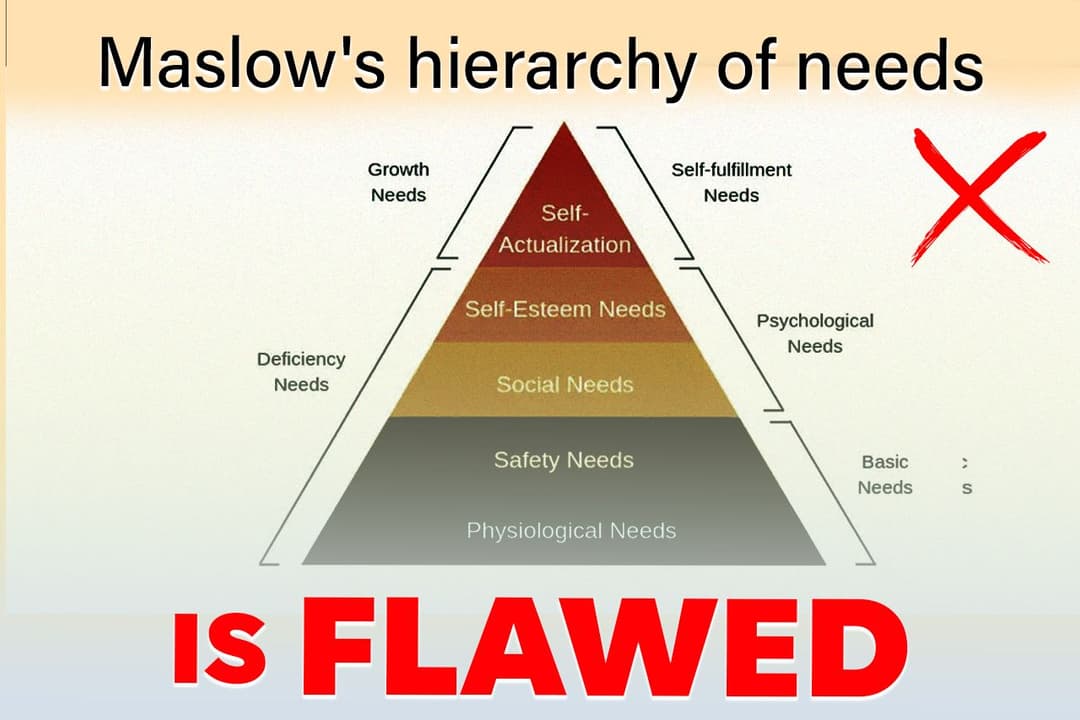
Published:
Osho vs Krishnamurthy
Published:
Published:
Noble Prize Chemistry:2024
Published:
1979 Iranian Revolution:
Published:
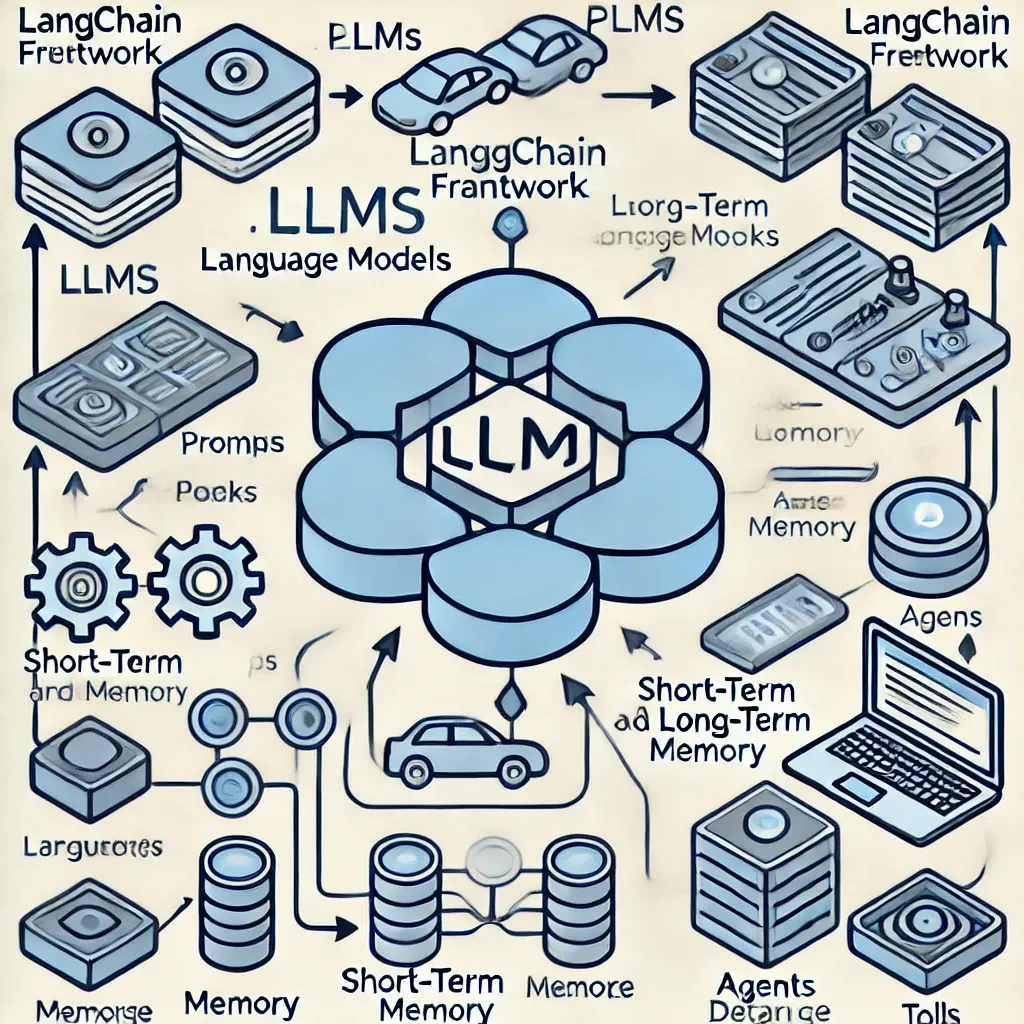
Published:
Interpretability versus performance trade-off given common ML algorithms. Source — http://tinyurl.com/4n5xtszb
Published:
XGBoost with monotonic constraints gives 7% higher KS compared to traditional score-card model and explainability problem is being solved using SHAP explanations.
Published:
This is difficult enough, but even once a vision is in place, many leaders fail to execute it over the many years that it may require. They don’t translate the vision into a structured plan that they keep in focus over time. When change efforts require years, however, tracking often gets fuzzy, falling away in the face of rapidly changing business and economic conditions that force constant adaptation to produce day-to-day results.
Published:
Published:
Time Series Clustering - Mixture Models for Clustering
Published:
Published:
Published:
Published:
Published:
Published:
Published:
Published:
Published:
Published:
Published:
Published:
Published:
Published:
“A Short History of Nearly Everything” by Bill Bryson is a popular science book that provides an engaging, accessible exploration of major scientific concepts and discoveries about the universe, Earth, and humanity’s place within it. The book takes readers on a journey through various scientific disciplines, including astronomy, chemistry, biology, geology, and physics, highlighting the achievements and struggles of the scientists who have shaped our understanding of the world.
Published:
“Not Afraid: The Evolution of Eminem” by Anthony Bozza provides a detailed look into the life and career of Marshall Mathers (Eminem), capturing his personal struggles and artistic growth.
Published:
Published:
Types of sufferings/pain
Published:
Overthinking and Dependencies over others
Published:
Chapter 4
Verse 4.40
Published:
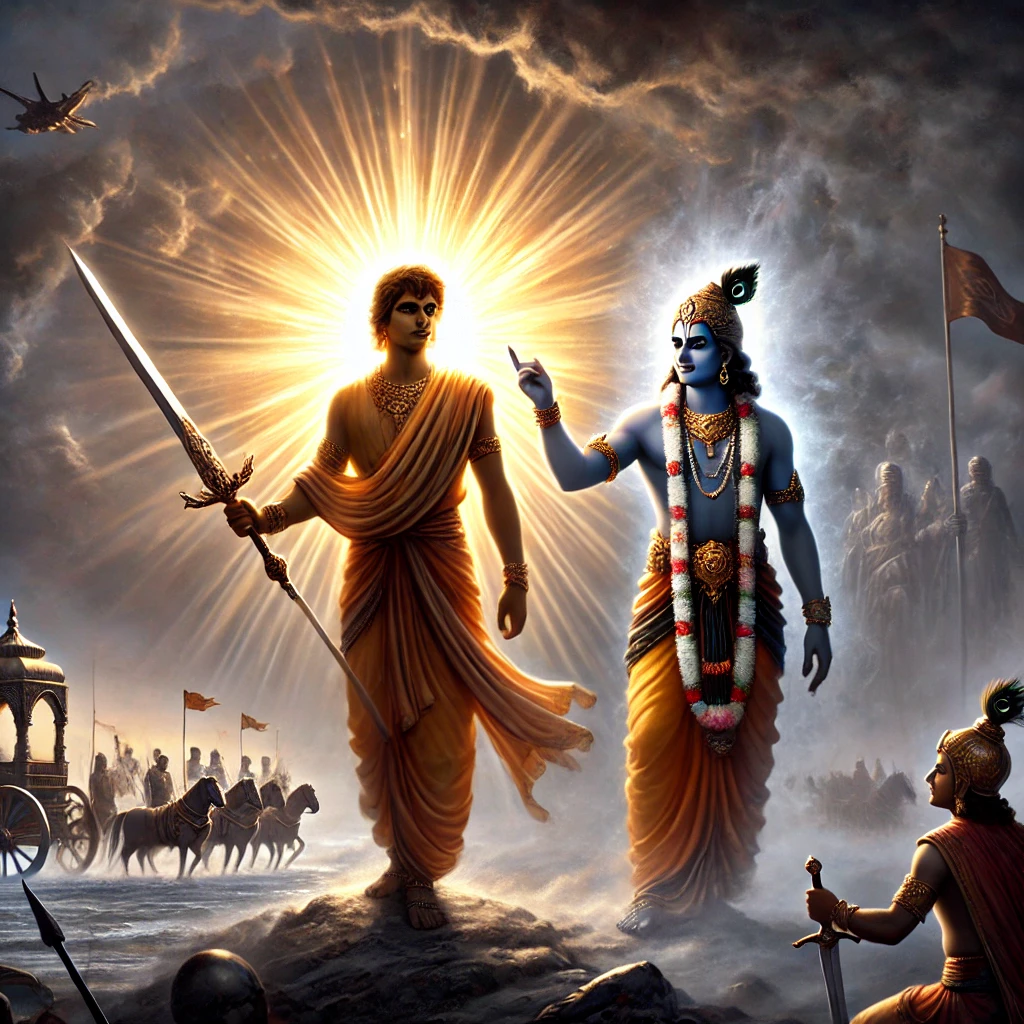
Published:
Chapter 5
Verse 5.1-2
Published:
Chapter 5
Verse 5.3
Published:
Chapter 5
Verse 5.4
uparyuktt sannyaas aur karmayog ko moorkh log prthak-prthak phal dene vaale kahate hain na ki panditajan ; kyonki donon mein se ek mein bhee samyak prakaar se sthit purush donon ke phalaroop paramaatma ko praapt hota hai
Published:
Verse 1.1
धृतराष्ट्र उवाच | धर्मक्षेत्रे कुरुक्षेत्रे समवेता युयुत्सवः | मामकाः पाण्डवाश्चैव किमकुर्वत सञ्जय || 1 ||
Translation: Dhritarashtra said: O Sanjaya, assembled in the holy land of Kurukshetra and desirous of battle, what did my sons and the sons of Pandu do?
Verse 1.2
सञ्जय उवाच | दृष्ट्वा तु पाण्डवानीकं व्यूढं दुर्योधनस्तदा | आचार्यमुपसंगम्य राजा वचनमब्रवीत् || 2 ||
Translation: Sanjaya said: O King, after seeing the army of the Pandavas arrayed in military formation, King Duryodhana approached his teacher, Dronacharya, and said the following words.
Verse 1.3
पश्यैतां पाण्डुपुत्राणामाचार्य महतीं चमूम् | व्यूढां द्रुपदपुत्रेण तव शिष्येण धीमता || 3 ||
Translation: Behold, O Teacher, this mighty army of the sons of Pandu, arrayed by the son of Drupada, your wise disciple.
Verse 1.4
अत्र शूरा महेष्वासा भीमार्जुनसमा युधि | युयुधानो विराटश्च द्रुपदश्च महारथः || 4 ||
Translation: Here in this army are many heroic bowmen equal in fighting to Bhima and Arjuna: Yuyudhana, Virata, and the mighty Drupada.
Verse 1.5
धृष्टकेतुश्चेकितानः काशिराजश्च वीर्यवान् | पुरुजित्कुन्तिभोजश्च शैब्यश्च नरपुङ्गवः || 5 ||
Translation: There are also great heroes like Dhrishtaketu, Chekitana, the valiant king of Kashi, Purujit, Kuntibhoja, and Shaibya, the best among men.
Verse 1.6
युधामन्युश्च विक्रान्त उत्तमौजाश्च वीर्यवान् | सौभद्रो द्रौपदेयाश्च सर्व एव महारथाः || 6 ||
Translation: There are the courageous Yudhamanyu and the valiant Uttamaujas, the son of Subhadra, and the sons of Draupadi—all great warriors.
Verse 1.7
अस्माकं तु विशिष्टा ये तान्निबोध द्विजोत्तम | नायका मम सैन्यस्य संज्ञार्थं तान्ब्रवीमि ते || 7 || Translation: O best of the Brahmanas, let me now tell you about the prominent commanders of my army, for your information.
Verse 1.8
भवान्भीष्मश्च कर्णश्च कृपश्च समितिंजयः | अश्वत्थामा विकर्णश्च सौमदत्तिस्तथैव च || 8 || Translation: There are personalities like yourself, Bhishma, Karna, Kripa, Ashwatthama, Vikarna, and Bhurishrava, who are ever victorious in battle.
Verse 1.9
अन्ये च बहवः शूरा मदर्थे त्यक्तजीविताः | नानाशस्त्रप्रहरणाः सर्वे युद्धविशारदाः || 9 || Translation: There are many other heroes who have given up their lives for my sake. They are all skilled in the art of warfare and armed with various weapons.
Verse 1.10
अपर्याप्तं तदस्माकं बलं भीष्माभिरक्षितम् | पर्याप्तं त्विदमेतेषां बलं भीमाभिरक्षितम् || 10 || Translation: Our strength, protected by Bhishma, is unlimited, while the strength of the Pandavas, protected by Bhima, is limited.
Verse 1.11
अयनेषु च सर्वेषु यथाभागमवस्थिताः | भीष्ममेवाभिरक्षन्तु भवन्तः सर्व एव हि || 11 || Translation: Therefore, all of you must now give full support to Bhishma, stationed at your respective strategic points in the formation of the army.
Verse 1.12
तस्य सञ्जनयन्हर्षं कुरुवृद्धः पितामहः | सिंहनादं विनद्योच्चैः शङ्खं दध्मौ प्रतापवान् || 12 || Translation: Then, to encourage Duryodhana, the mighty grandsire of the Kuru dynasty, Bhishma, the oldest among the warriors, blew his conch shell loudly like the roar of a lion.
Verse 1.13
ततः शङ्खाश्च भेर्यश्च पणवानकगोमुखाः | सहसैवाभ्यहन्यन्त स शब्दस्तुमुलोऽभवत् || 13 || Translation: After that, conch shells, kettle drums, tabors, trumpets, and cow horns blared forth, and the combined sound was tumultuous.
Verse 1.14
ततः श्वेतैर्हयैर्युक्ते महति स्यन्दने स्थितौ | माधवः पाण्डवश्चैव दिव्यौ शङ्खौ प्रदध्मतुः || 14 || Translation: Then, Lord Krishna and Arjuna, stationed in a grand chariot drawn by white horses, sounded their divine conch shells.
Verse 1.15
पाञ्चजन्यं हृषीकेशो देवदत्तं धनञ्जयः | पौण्ड्रं दध्मौ महाशङ्खं भीमकर्मा वृकोदरः || 15 || Translation: Hrishikesha (Krishna) blew his conch, called Panchajanya, and Arjuna blew his, the Devadatta. Bhima, the performer of mighty deeds, blew his conch, the Paundra.
Verse 1.16
अनन्तविजयं राजा कुन्तीपुत्रो युधिष्ठिरः | नकुलः सहदेवश्च सुघोषमणिपुष्पकौ || 16 || Translation: King Yudhishthira, the son of Kunti, blew his conch, the Anantavijaya, while Nakula and Sahadeva blew the Sughosha and Manipushpaka.
Verse 1.17
काश्यश्च परमेष्वासः शिखण्डी च महारथः | धृष्टद्युम्नो विराटश्च सात्यकिश्चापराजितः || 17 || Translation: The great archer, King of Kashi, the mighty warrior Shikhandi, Dhrishtadyumna, Virata, and the invincible Satyaki blew their respective conch shells.
Verse 1.18
द्रुपदो द्रौपदेयाश्च सर्वशः पृथिवीपते | सौभद्रश्च महाबाहुः शङ्खान्दध्मुः पृथक्पृथक् || 18 || Translation: O King, Drupada, the sons of Draupadi, and the mighty-armed Abhimanyu, son of Subhadra, all blew their respective conch shells.
Verse 1.19
स घोषो धार्तराष्ट्राणां हृदयानि व्यदारयत् | नभश्च पृथिवीं चैव तुमुलोऽभ्यनुनादयन् || 19 || Translation: The tremendous sound, resounding through the sky and earth, shattered the hearts of Dhritarashtra’s sons.
Verse 1.20
अथ व्यवस्थितान्दृष्ट्वा धार्तराष्ट्रान् कपिध्वजः | प्रवृत्ते शस्त्रसम्पाते धनुरुद्यम्य पाण्डवः || 20 || Translation: At that time, the son of Pandu, Arjuna, whose flag bore the emblem of Hanuman, took up his bow as he prepared to engage in battle, seeing the sons of Dhritarashtra arrayed before him.
Published:
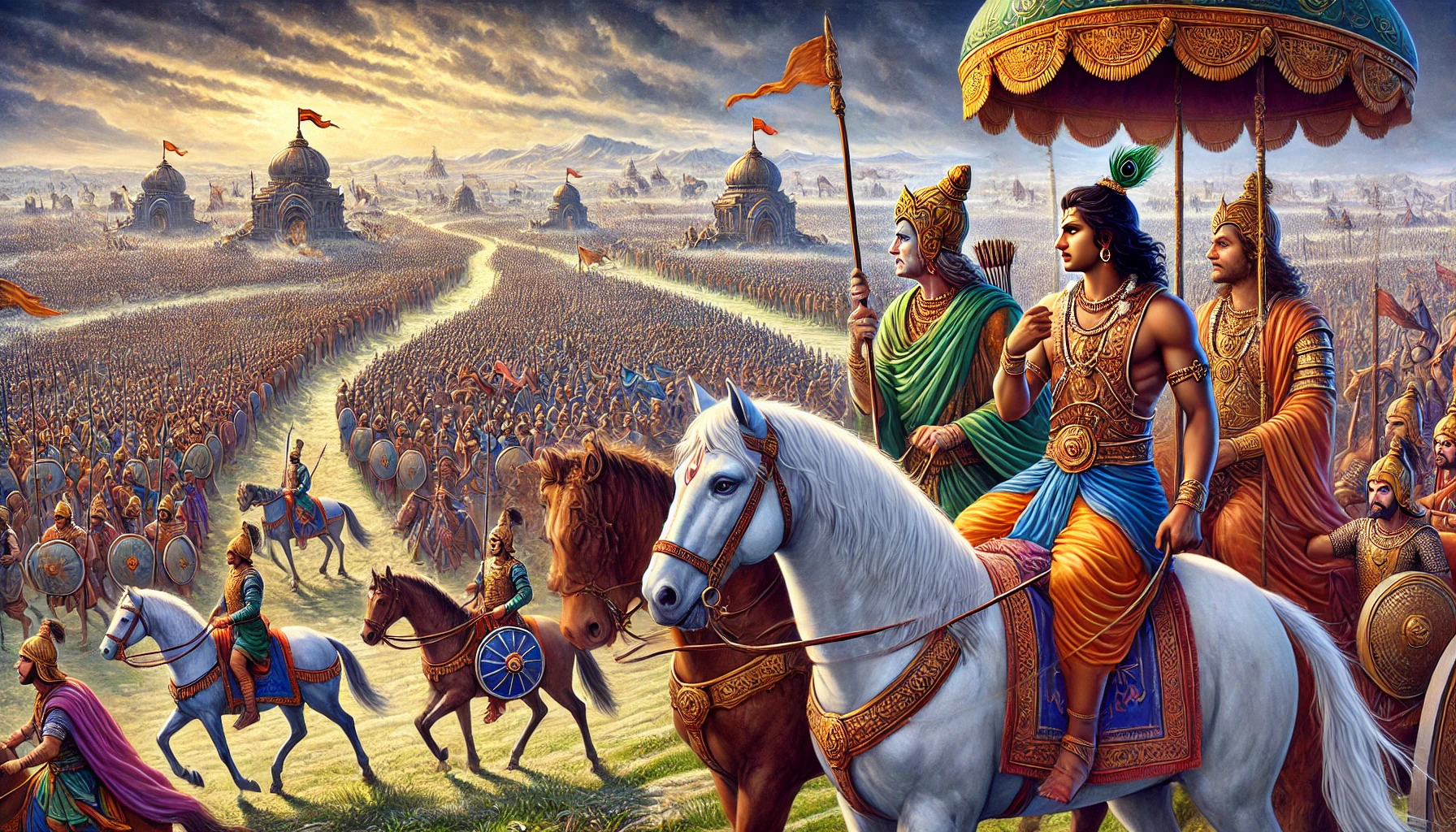
Published:
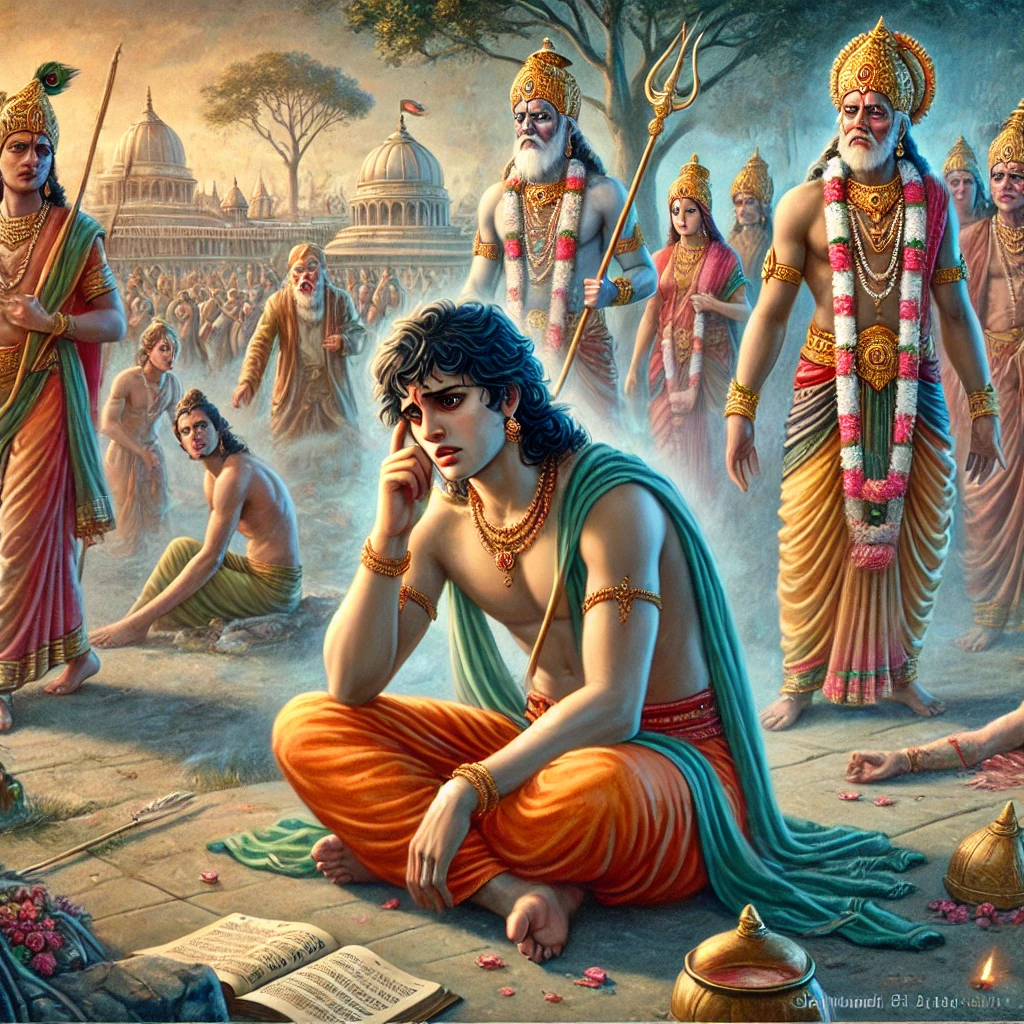
Published:
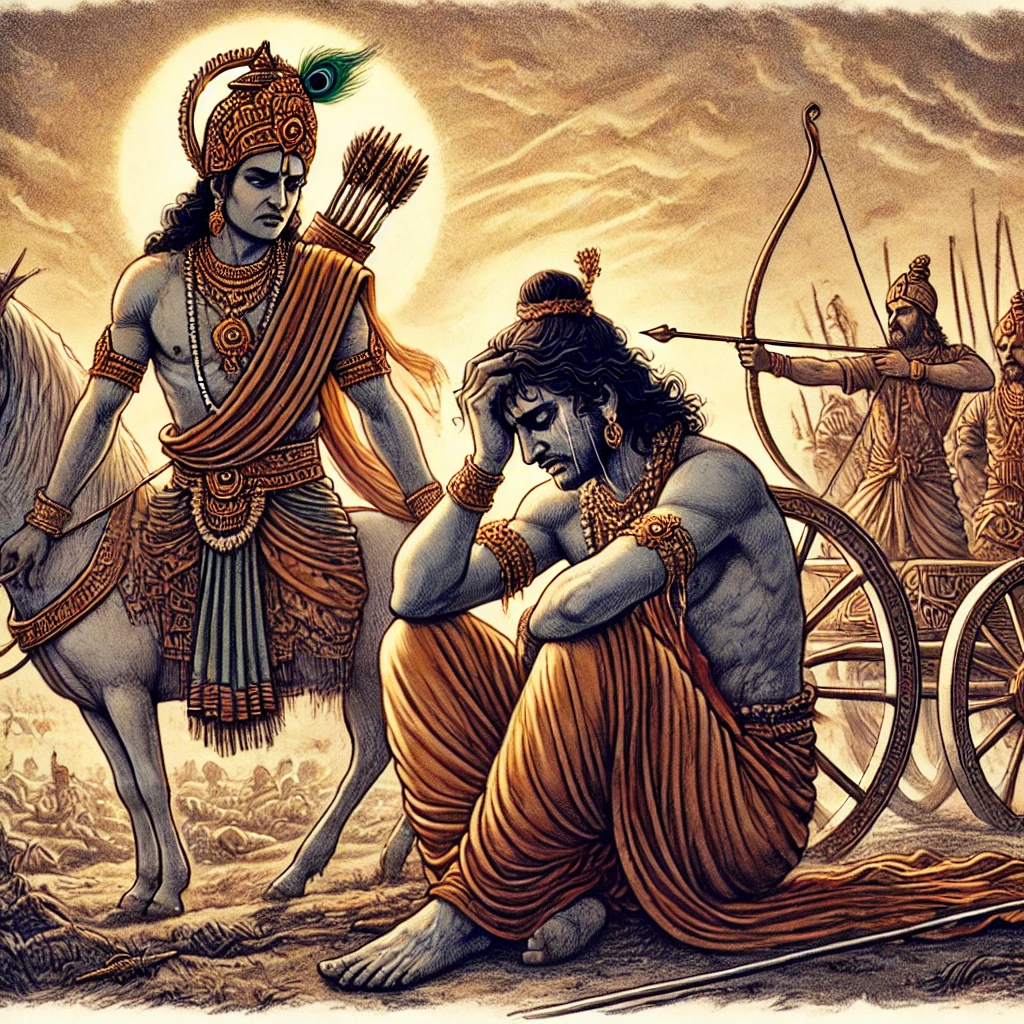 Chapter 1
Chapter 1
Published:
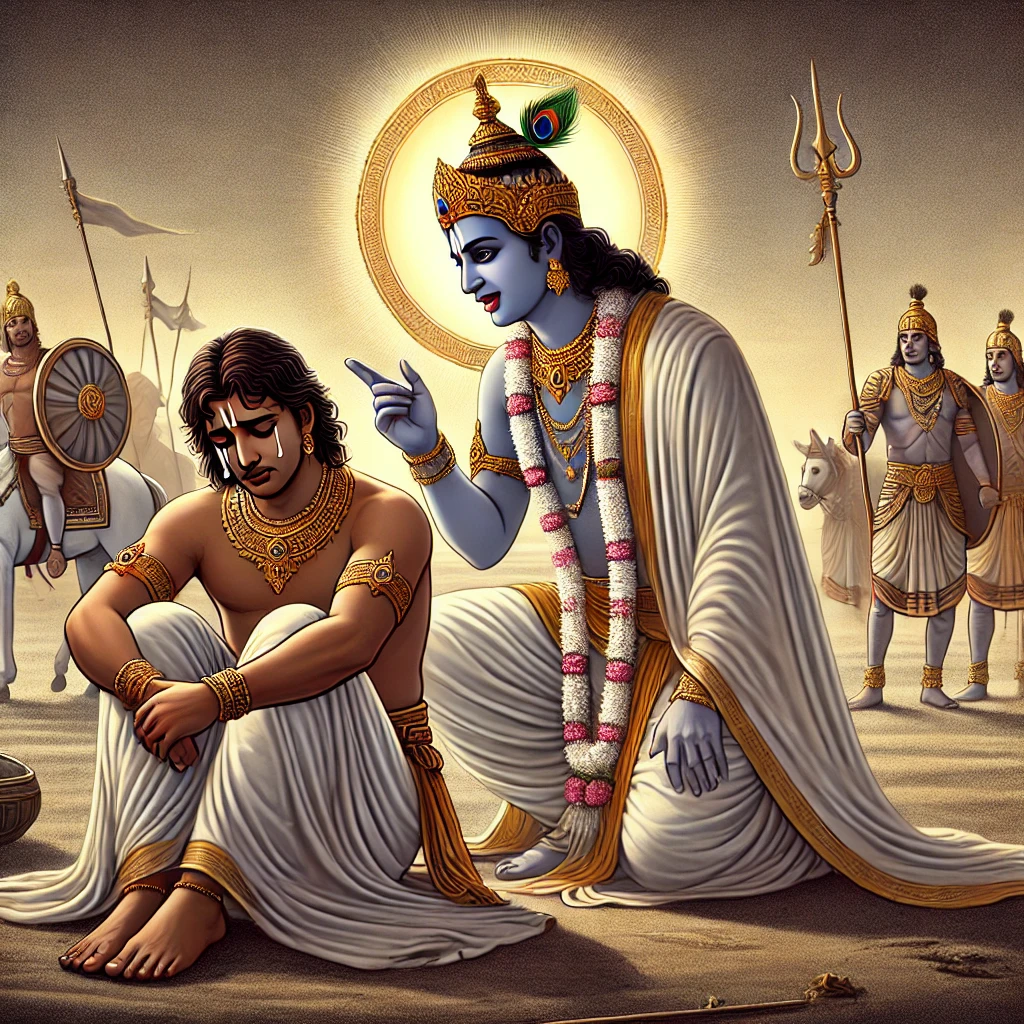
Published:
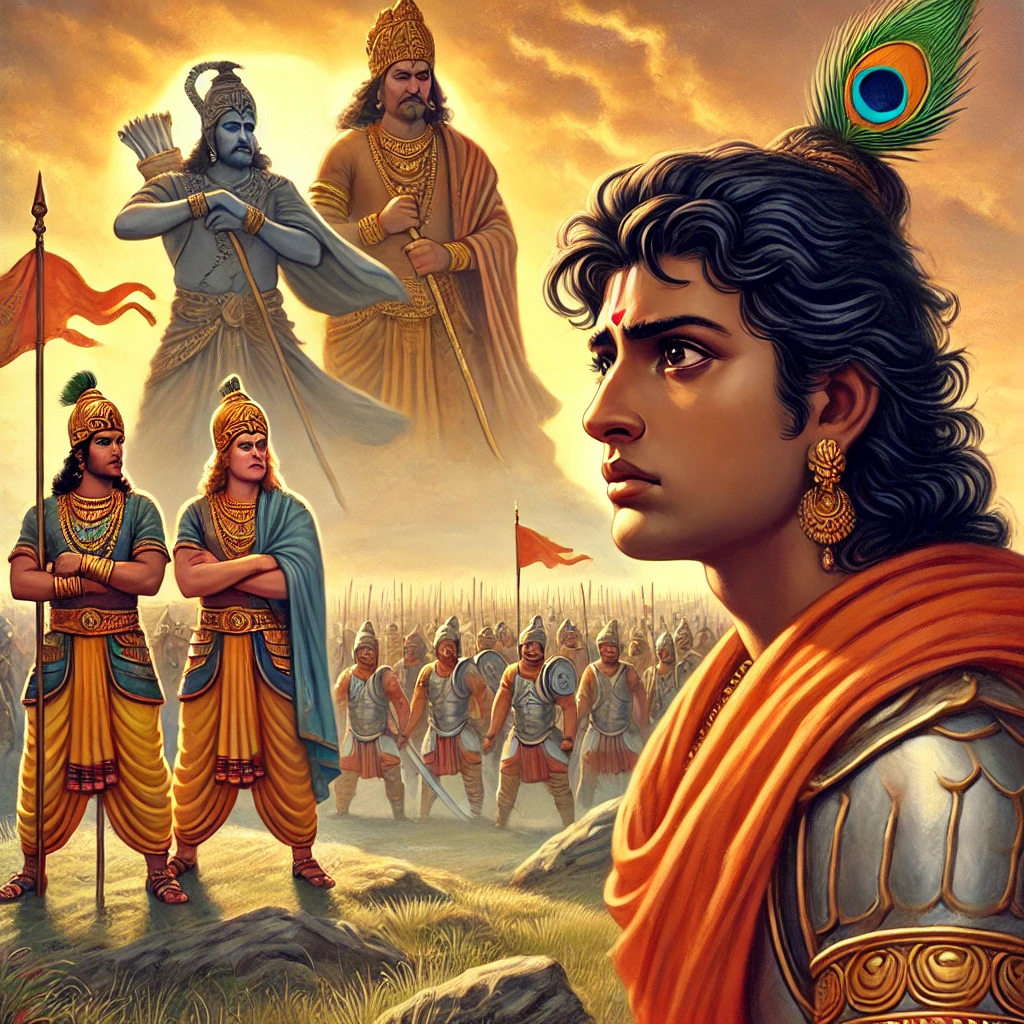
Published:
Here is Bhagavad Gita, Chapter 2, Verses 10 and 11, with translations:
Published:
Here are verses 2.12 and 2.13 from the Bhagavad Gita:
Published:
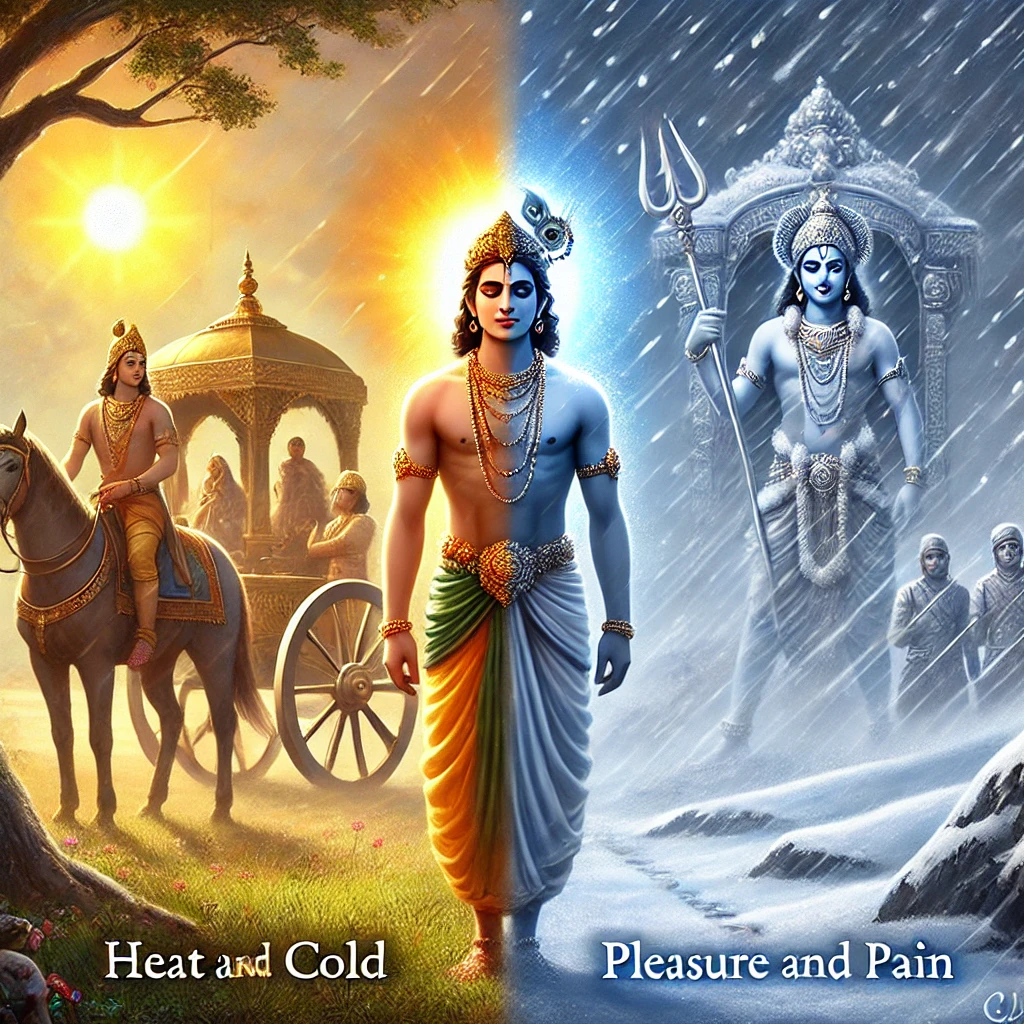
Published:

Published:
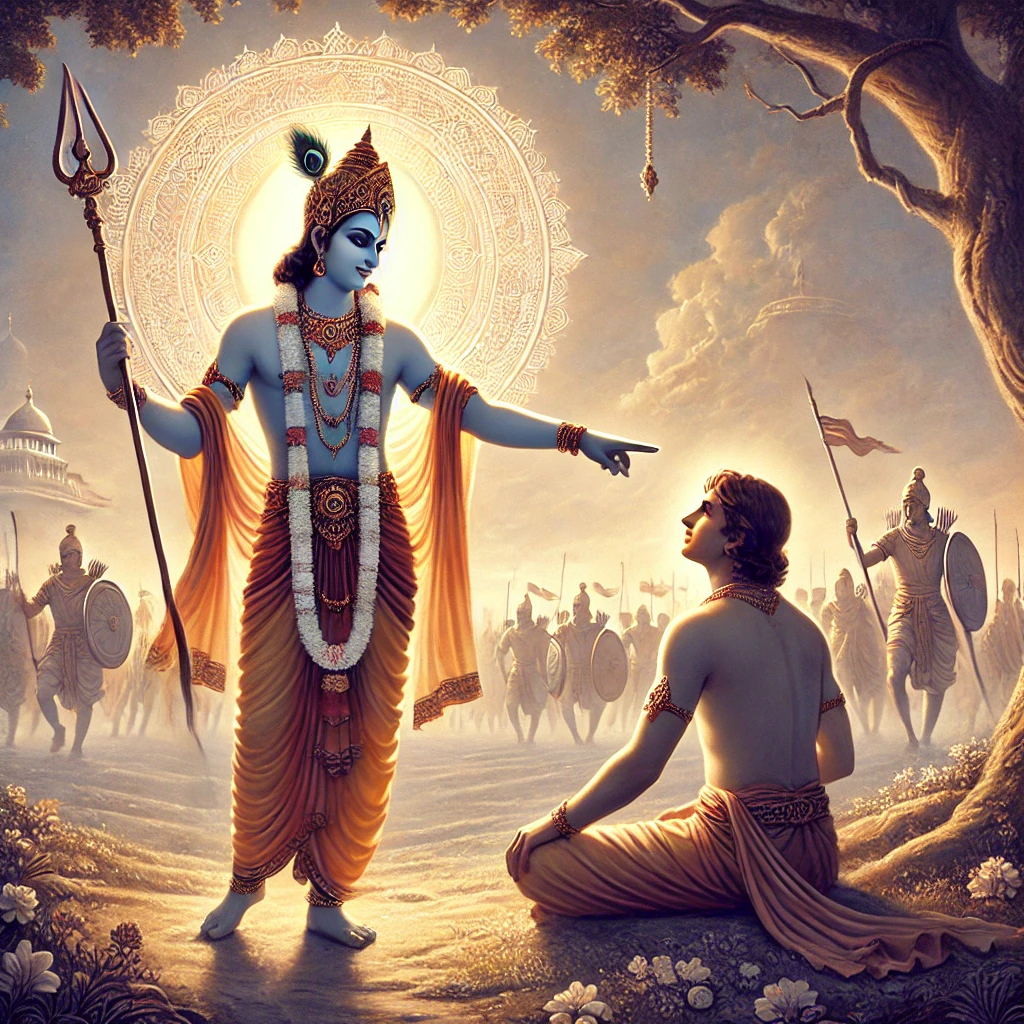
Published:
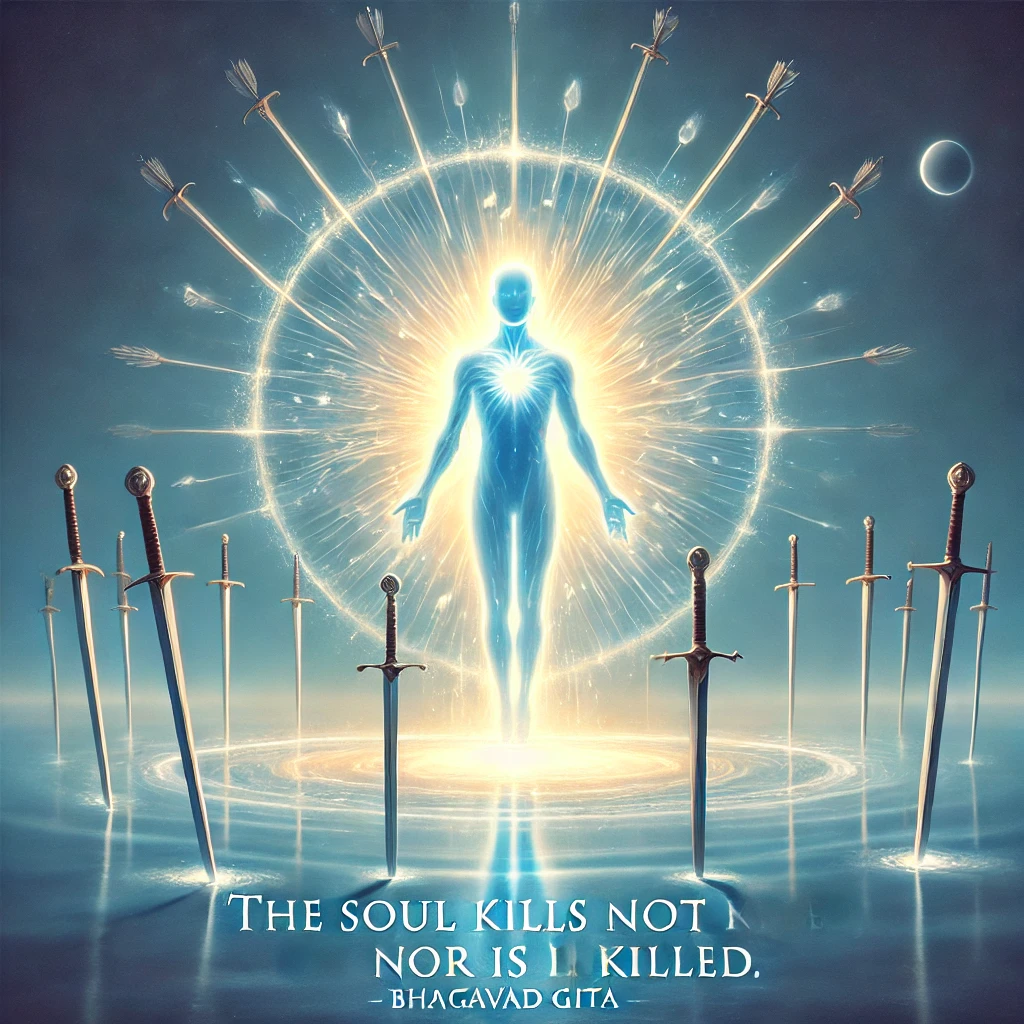
Published:

Published:
Published:
Published:
Published:
Published:
Published:
Published:
Published:
Published:
Published:
Published:
Published:
Published:
Published:
Published:
Published:
Published:
Published:
Published:
Published:
Published:
Published:
Published:
Published:
Published:
Published:
Published:
Published:
Published:
Published:
Published:
Published:
Published:
Published:
Published:
Published:
Published:
Published:
Published:
Published:
Published:
Published:
Published:
Published:
Published:
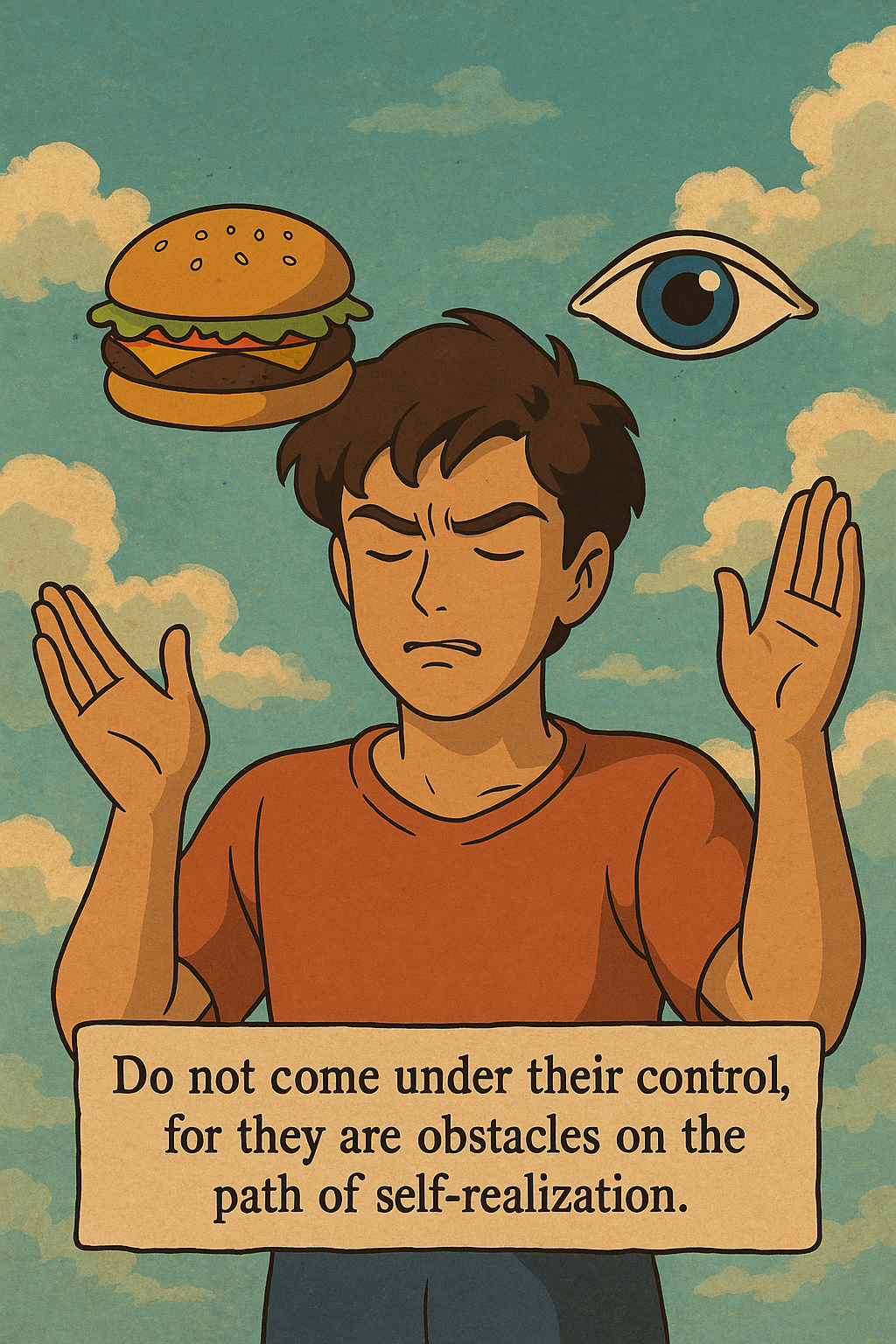
Published:
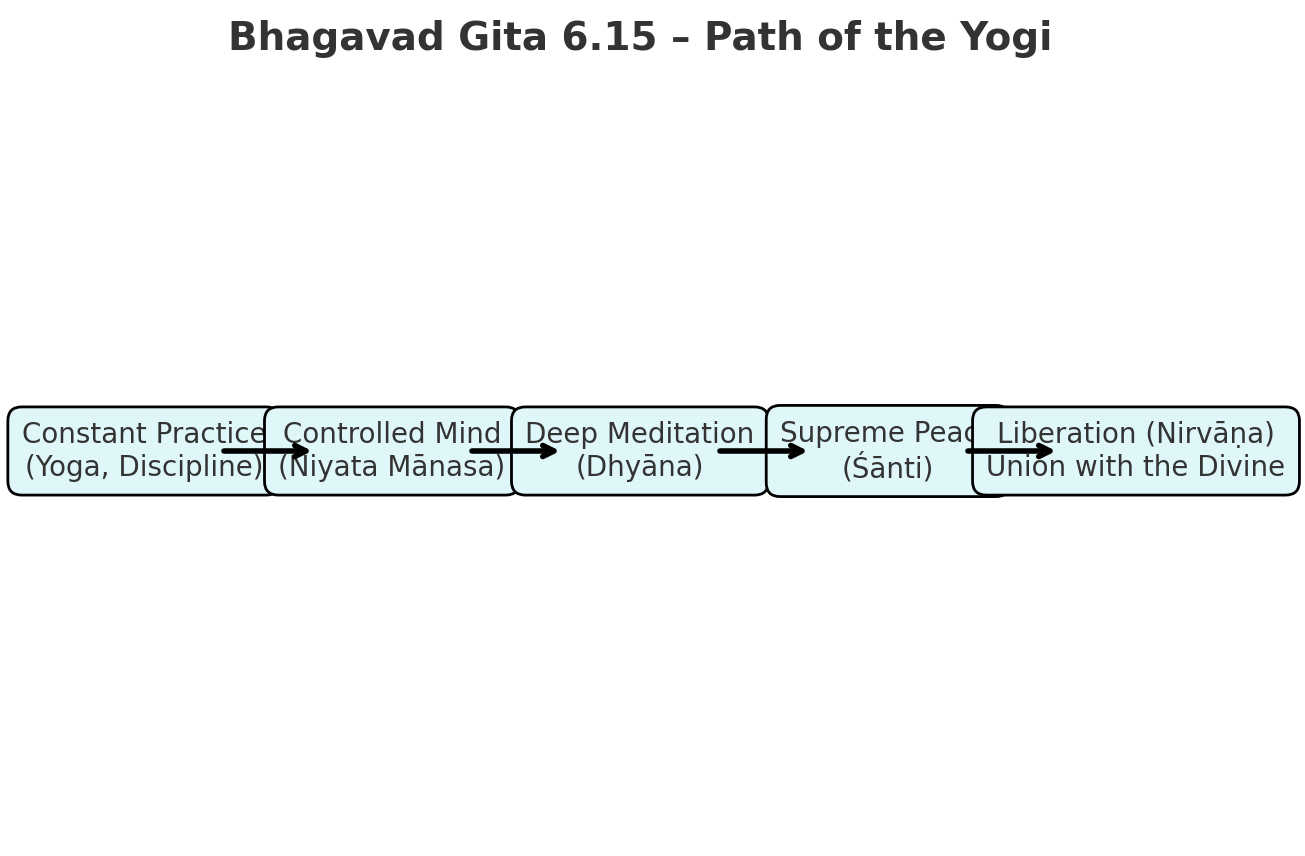
Published:
भगवद् गीता 6.28 — Shloka, Meaning & Essence Sanskrit
युञ्जन्नेवं सदात्मानं योगी विगतकल्मषः ।
सुखेन ब्रह्मसंस्पर्शमत्यन्तं सुखमश्नुते ॥ ६.२८ ॥
Published:
Published:
Published:
Line 1: जो मैं बौरा तो राम तोरा
Notes: Sa Re Ga Ma Pa, Pa Ma Ga Re Sa
Published:
Moko Kahan Dhundhe Re Bande
Sa Sa Re Ma Ga Re Sa (Sa for emphasis)
Main To Tere Paas Mein
Ma Ma Pa Dha Ni Dha Pa
Published:
Raag Desh (or Raaga Desh) is a traditional raga in Indian classical music, associated with the late evening and monsoon season. Known for its serene, emotional, and patriotic character, it is commonly played to evoke feelings of devotion, longing, and tranquility. Raag Desh is often heard in instrumental performances, vocal compositions, and even patriotic songs in India, such as the iconic Vande Mataram and Jana Gana Mana.
Published:
There are 10 types of Thats:-
Published:
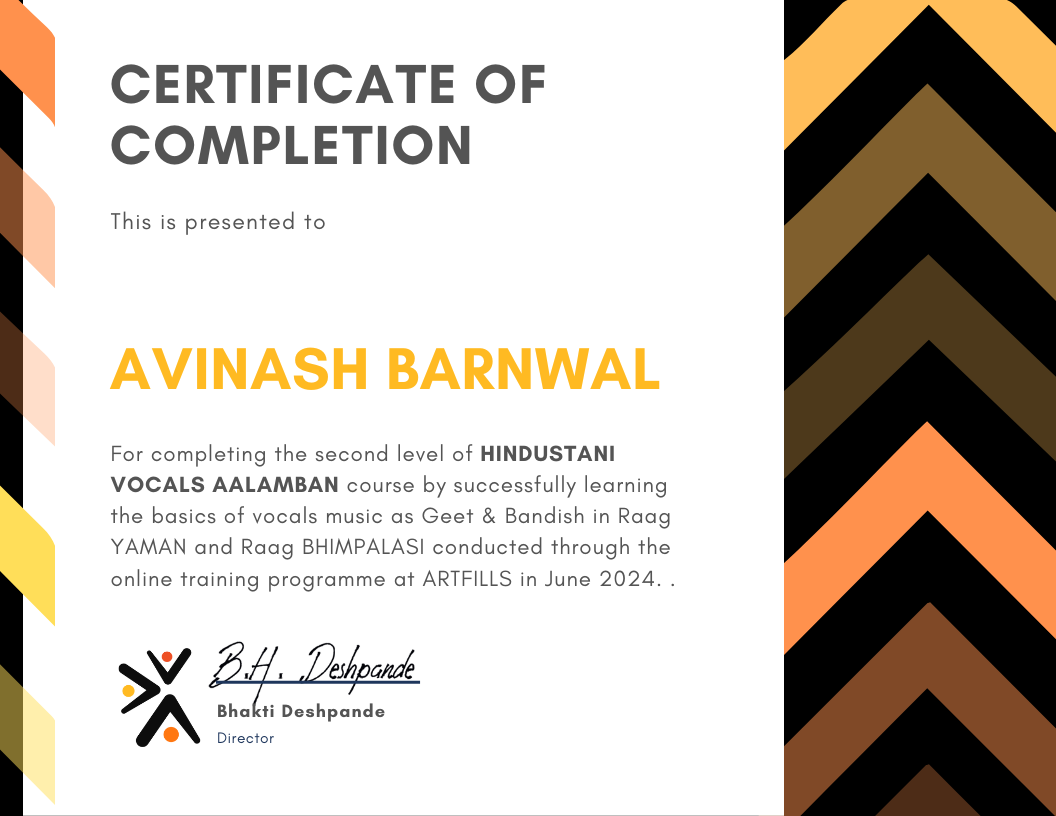
Published in Journal of Mathematical Psychology Volumes 68–69, October–December 2015, Pages 49-58, 2015
The linear ballistic accumulator model is a theory of decision-making that has been used to analyse data from human and animal experiments.
Recommended citation: Andrew Terry and A.A.J. Marley and Avinash Barnwal and E.-J. Wagenmakers and Andrew Heathcote and Scott D. Brown (2015). "Generalising the drift rate distribution for linear ballistic accumulators." Journal of Mathematical Psychology . https://www.sciencedirect.com/science/article/abs/pii/S0022249615000577
Published in 2019 New York Scientific Data Summit (NYSDS), 2015
Predicting the direction of assets have been an active area of study and difficult task. Machine learning models have been used to build robust models to model the above task. Ensemble methods are one of them resulting better than single supervised method. We have used generative and discriminative classifiers to create the stack, particularly 3 generative and 6 discriminative classifiers and optimized over one-layer Neural Network to model the direction of price cryptocurrencies. Features used are technical indicators not limited to trend, momentum, volume, volatility indicators and sentiment indicators. For Cross validation, Purged Walk forward cross validation has been used. In terms of accuracy, we have done comparative analysis of the performance of Ensemble method with Stacking and individual models. We have also developed methodology for features importance for stacked model. Important indicators are identified based on feature importance.
Recommended citation: A. Barnwal, H. P. Bharti, A. Ali and V. Singh, ""Stacking with Neural Network for Cryptocurrency investment"" 2019 New York Scientific Data Summit (NYSDS) . https://ieeexplore.ieee.org/document/8909804
Published in 2019 New York Scientific Data Summit (NYSDS), 2019
Survival month for non-small lung cancer patients depend upon which stage of lung cancer is present. Our aim is to identify smoking specific gene expression biomarkers in prognosis of lung cancer patients. In this paper, we introduce the network elastic net, a generalization of network lasso that allows for simultaneous clustering and regression on graphs. In network elastic net, we consider similar patients based on smoking cigarettes per year to form the network. We then further find the suitable cluster among patients based on coefficients of genes having different survival month structures and showed the efficacy of the clusters using stage enrichment. This can be used to identify the stage of cancer using gene expression and smoking behavior of patients without doing any tests.
Recommended citation: A. Barnwal, "Network Elastic Net for Identifying Smoking specific gene expression for lung cancer," 2019 New York Scientific Data Summit (NYSDS), New York, NY, USA, 2019, pp. 1-4, doi: 10.1109/NYSDS.2019.8909802. https://ieeexplore.ieee.org/abstract/document/8909802
Published in Arxiv, 2020
Survival month for non-small lung cancer patients depend upon which stage of lung cancer is present. Our aim is to identify smoking specific gene expression biomarkers in prognosis of lung cancer patients. In this paper, we introduce the network elastic net, a generalization of network lasso that allows for simultaneous clustering and regression on graphs. In network elastic net, we consider similar patients based on smoking cigarettes per year to form the network. We then further find the suitable cluster among patients based on coefficients of genes having different survival month structures and showed the efficacy of the clusters using stage enrichment. This can be used to identify the stage of cancer using gene expression and smoking behavior of patients without doing any tests.
Recommended citation: Barnwal, Avinash et al. “Survival regression with accelerated failure time model in XGBoost.” ArXiv abs/2006.04920 (2020): n. pag. https://arxiv.org/pdf/2006.04920.pdf
Published:
Poster Presentation of the paper 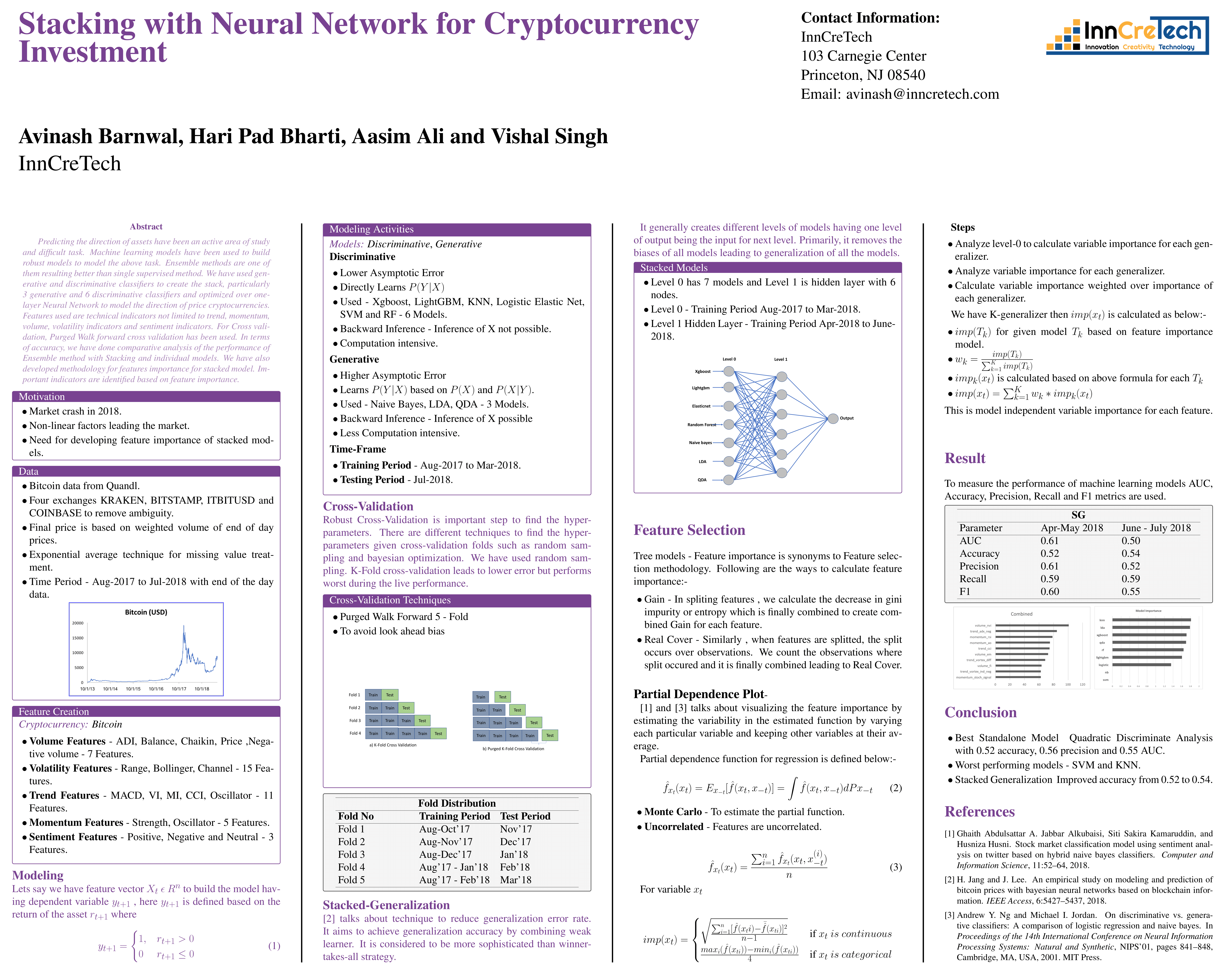
Published:
Poster Presentation of the paper 
Graduate course, Stony Brook University, Applied Mathematics ans Statistics, 2017